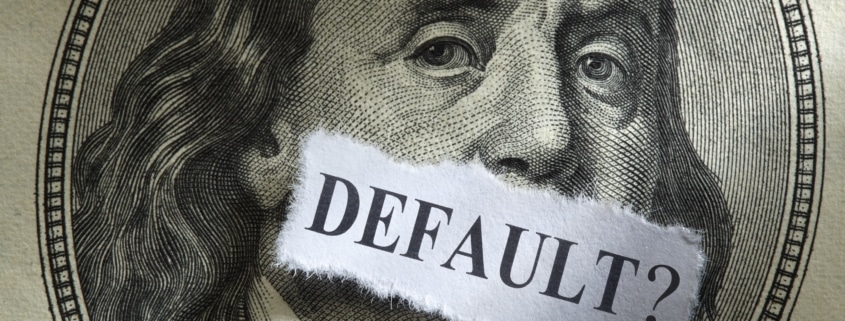How SBA Loan Forgiveness Works
Not every small business owner is going to succeed on their first try, as roughly 20% of small businesses, on average, fail in their first year of operation according to the Bureau of Labor Statistics. This past year has seen even worse with approximately 140,000 small businesses failing due to the COVID-19 pandemic.
It is important to learn from your business failure and move on. After all, as author Sinclair Lewis once wrote, “Failures are finger posts on the road to achievement.” So, if your small business failed to take off the way you hoped and you have an outstanding SBA loan, there is some good news: there are steps you can take to have at least some–if not all–of the loan forgiven.
No matter what type of SBA loan you took on for your business, be it a 7(a) loan or an SBA Micro Loan, if you have defaulted on a payment, you should talk to an attorney who specializes in dealing with the SBA, and consider applying for the SBA loan forgiveness program.
But, before you begin the process, there are several factors to consider when dealing with a delinquent, non-PPP SBA loan:
#1 Renegotiating With Your Lender
If you miss an SBA loan payment but are still holding out hope for your business, you’re going to get charged a late fee, so it is important that you keep a record of your payments as some lenders might not even alert you when you’ve missed a payment. Lenders generally don’t like to lose customers or money, so they most likely will seek to collect from you before they contact the SBA.
Some lenders may attempt to renegotiate the terms of the loan by offering a new loan repayment plan. If your business has been struggling due to the pandemic but is ready to get back on its feet soon, this may be a viable option for you as some lenders may offer interest-only payments until a new loan restructuring is complete.
#2 How Does it Work?
If your business is no longer viable and/or you cannot renegotiate with the direct lender and apply for loan forgiveness, the first thing you need to understand is that applying for it will not guarantee that the entire loan amount will be forgiven by the SBA.
Once you apply, the SBA will evaluate your case and step in only after the direct lender has made every effort to collect on the defaulted loan. Afterwards, the SBA may purchase back 50% to 85% of the loan, and then turn directly to you, the borrower, to pay back the remaining balance. If you cannot pay back the remaining assets in full, you can submit to the SBA an “offer in compromise,” wherein you agree to pay back some or none of the loan, depending on your circumstances.
This is the area in which you need to consult with a finance specialist or attorney who specializes in SBA loans, because the attorney can argue on your behalf that your loan should be fully forgiven. If you cannot pay back the remaining portion of the loan that the SBA states that you owe, it may actually seize your assets, which obviously is not a pleasant option.
#3 Drawbacks of SBA Loan Forgiveness
Applying for SBA loan forgiveness requires some unpleasant steps.
- First, you must dissolve your business entirely and liquidate all business property. This means selling everything related to your business, including equipment, computers, office furniture, etc.
- Second, be aware that asking for SBA loan forgiveness will make it difficult for you to obtain an SBA loan when you move on to your next venture.
- Third, asking for SBA loan forgiveness will negatively impact your business credit score and, potentially, your personal credit score if you were the guarantor of your business. This will make it more difficult to raise financing from both traditional and alternative business lenders in the future.
#4 Would it be Better to File for Bankruptcy?
Every business situation is unique, but if there is truly no hope for your small business, chapter 7 bankruptcy may be an option to explore. This type of bankruptcy would allow you to keep your assets and stop collection on any outstanding debt from business credit cards and loans.
It is also very complex and costly, however. Chapter 7 would require court filings, as well as follow any legal procedures required under the Small Business Reorganization Act of 2019, which was enhanced under the CARES Act passed in March 2020. Legal fees and court appearances will add up and a court may still decide that you have to liquidate some of your assets to pay off a portion of debt still owed to your creditors.
Again, this is an option you should discuss at length with a bankruptcy attorney or finance specialist.
Keep Moving Forward
Once your SBA loan has been forgiven or wiped clean, do not be discouraged. The day will come when you can try running your own business once again. Learn from your mistakes and come up with another great idea for a new business! Remember, financing options will still be available to you even if you need loan forgiveness or declared bankruptcy.

